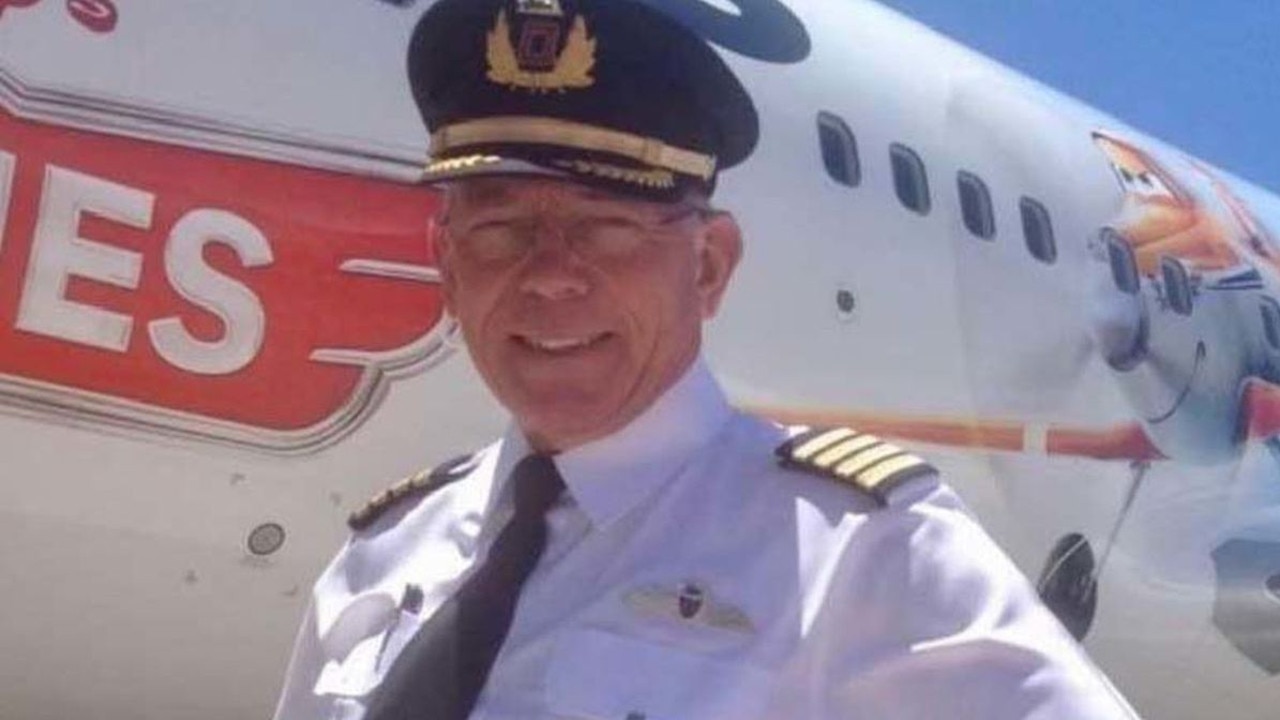This stunning aircraft radar image exposes major fails by Qantas and Virgin
An incredible aircraft radar map has put the performance of Australia’s major airlines to shame and reveals passengers are being treated as mugs, critics say.
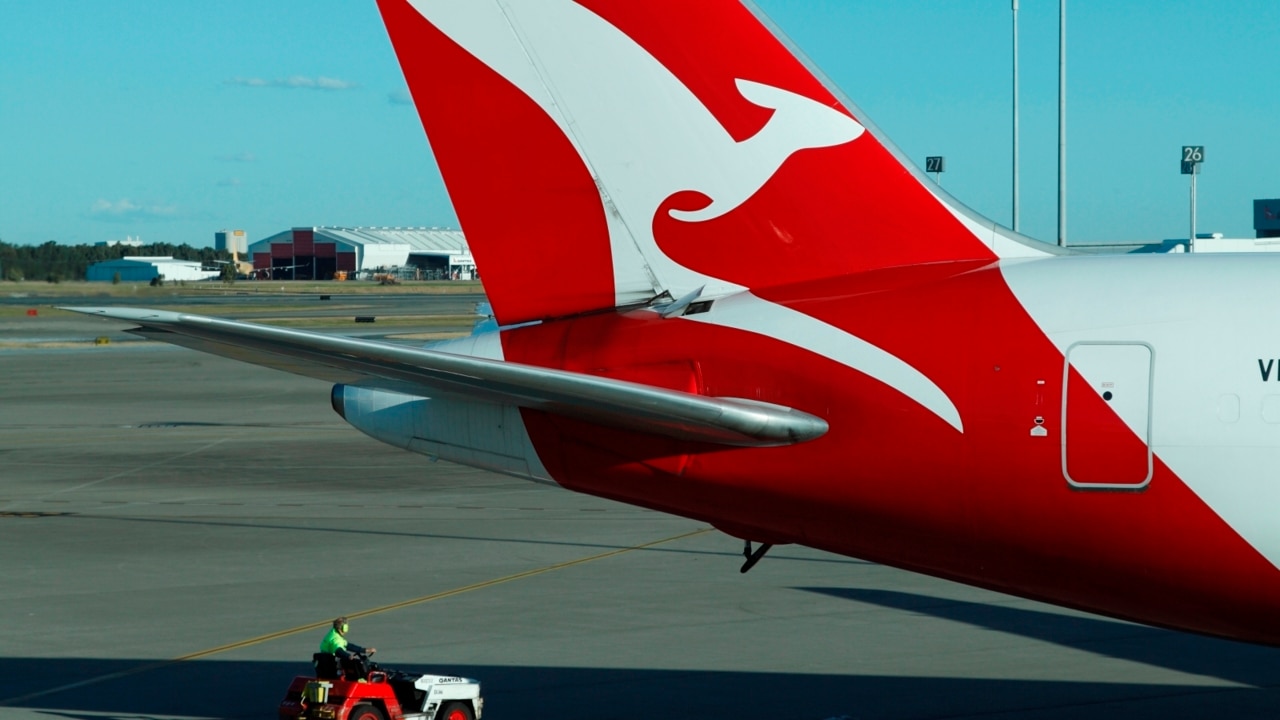
Analysis of domestic flight data in the United States puts the performance of Australia’s two largest airlines to shame and reveals passengers are being treated as mugs, experts say.
Wednesday was the busiest day ever for air travel in America, with a staggering 51,332 domestic flights taking off and landing at airports across the country.
Despite some 2.88 million people taking to the skies, things ran incredibly smoothly and less than half of one per cent of services were cancelled, flight tracking data shows.
By comparison, of the 1500 domestic flights run across Australia on Wednesday, a total of 75 were pulled on the day, representing five per cent of all services.
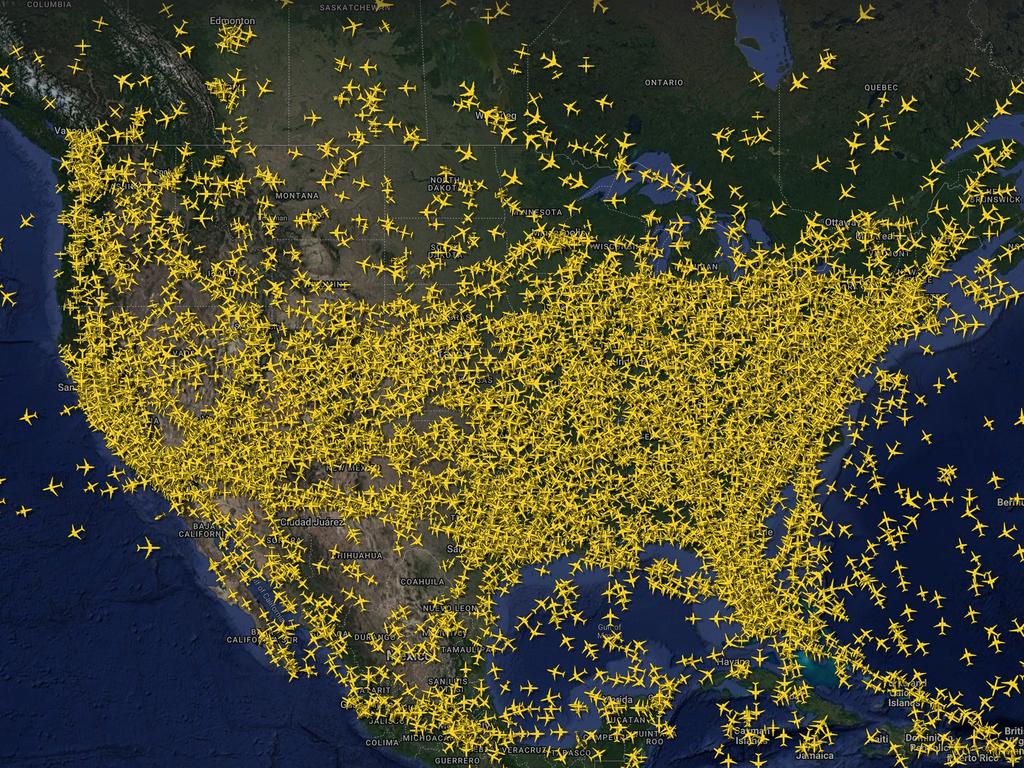
While operations in Sydney and Melbourne were impacted by rain events, official government data shows Qantas and Virgin, as well as budget carrier Jetstar, regularly hit close to that figure – rain, hail or shine.
Critics accuse the major airlines of putting profit ahead of performance.
In October, 3.9 per cent of combined Qantas services were called off while Jetstar and Virgin each pulled 4.1 per cent of its flights.
The industry wide average cancellation rate across all airports last month was 3.8 per cent, according to a Bureau of Infrastructure and Transport Research Economics (BITRE) report. Prior to Covid, the long-term average was about two per cent.
Common excuses just don’t fly
Cancellations were particularly bad at certain airports and on particular routes last month – but it’s a trend that has persisted in the wake of Covid.
For example, at the country’s busiest airport, Sydney’s Kingsford Smith, Qantas cancelled 11.7 per cent of its services between Sydney and Melbourne in October, while Jetstar culled 9.3 per cent of services and Virgin ditched 10.4 per cent.
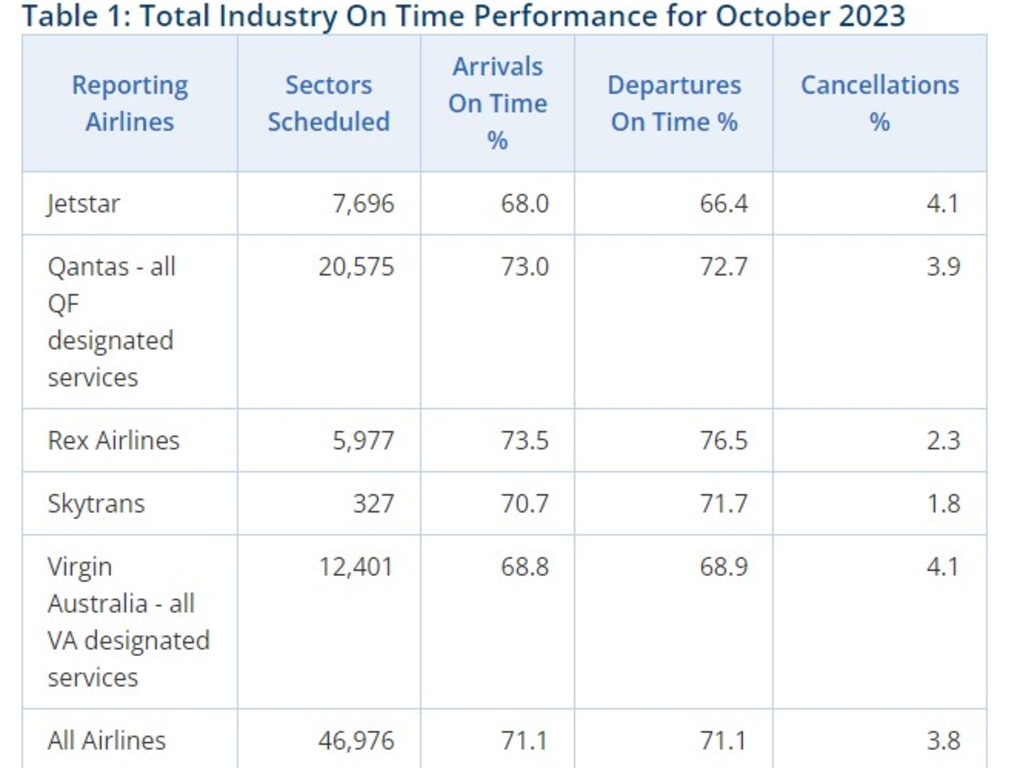
Federal independent MP Monique Ryan took aim at Qantas, which has been marred by scandal in the past year, describing the iconic airline as “the cartel of the clouds”.
“Millions of Australians are booking their flights to see family over the holidays, but at least one in 20 of those flights will be cancelled,” Dr Ryan told news.com.au.
“That’s not good enough. Qantas and other Australian airline are taking travellers for the wrong kind of ride. It’s time that stops.”
She called on the government to intervene and give consumers “more rights as a matter of urgency”.
“Airfares are up, cancellations are up – and at the same time profits are up. Airlines like Qantas are not respecting their customers as much as they should.”
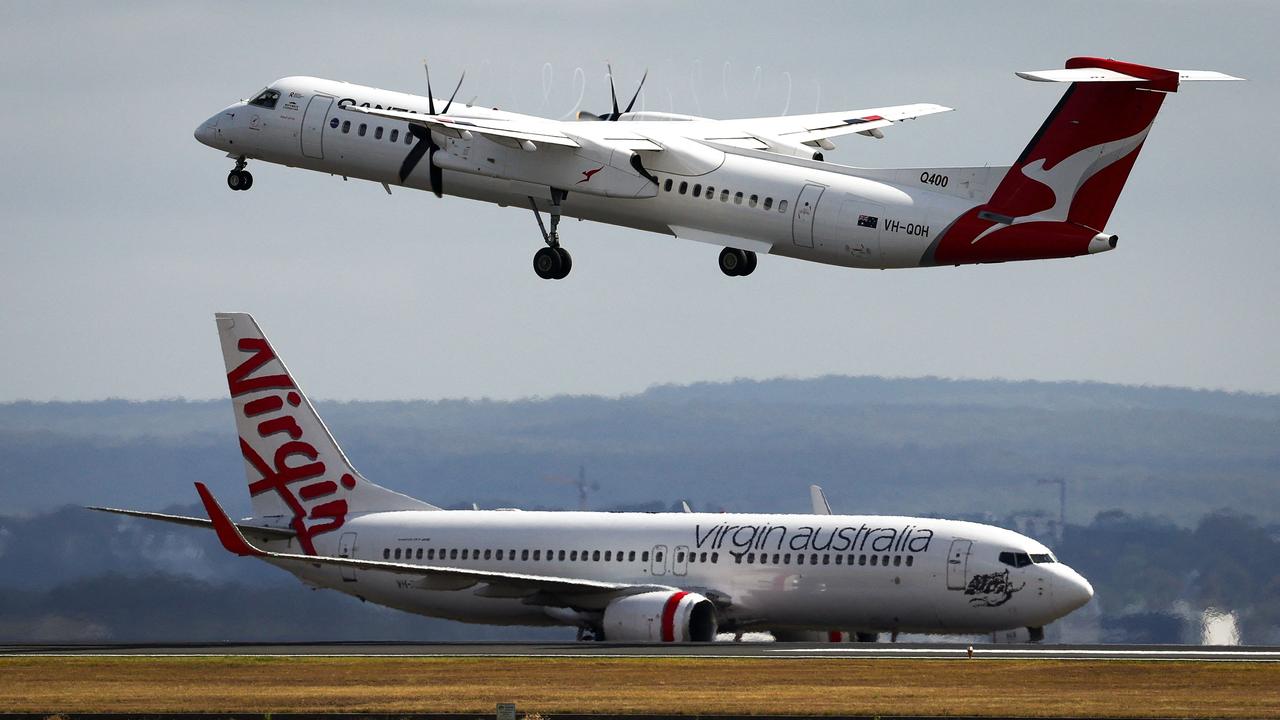
It’s just not passengers and politicians frustrated with airlines.
Outgoing boss of Sydney Airport Corporation, Geoff Culbert, spoke at the Australian Airports Association conference earlier this month where he described “consistently high cancellation rates” as “unacceptable”.
Qantas regularly points to adverse weather and logistical air traffic control-related issues as reasons for the bulk of its cancellations.
But in September, data shows there were 17 days without any weather or air traffic issues, and yet inbound and outbound traffic on the busy Sydney to Melbourne route saw 184 cancellations – or 52 per cent of the total number of cancellations for the month.
“In other words, in September there was almost zero correlation between cancellations and external factors like weather or air traffic control issues,” Mr Culbert said.
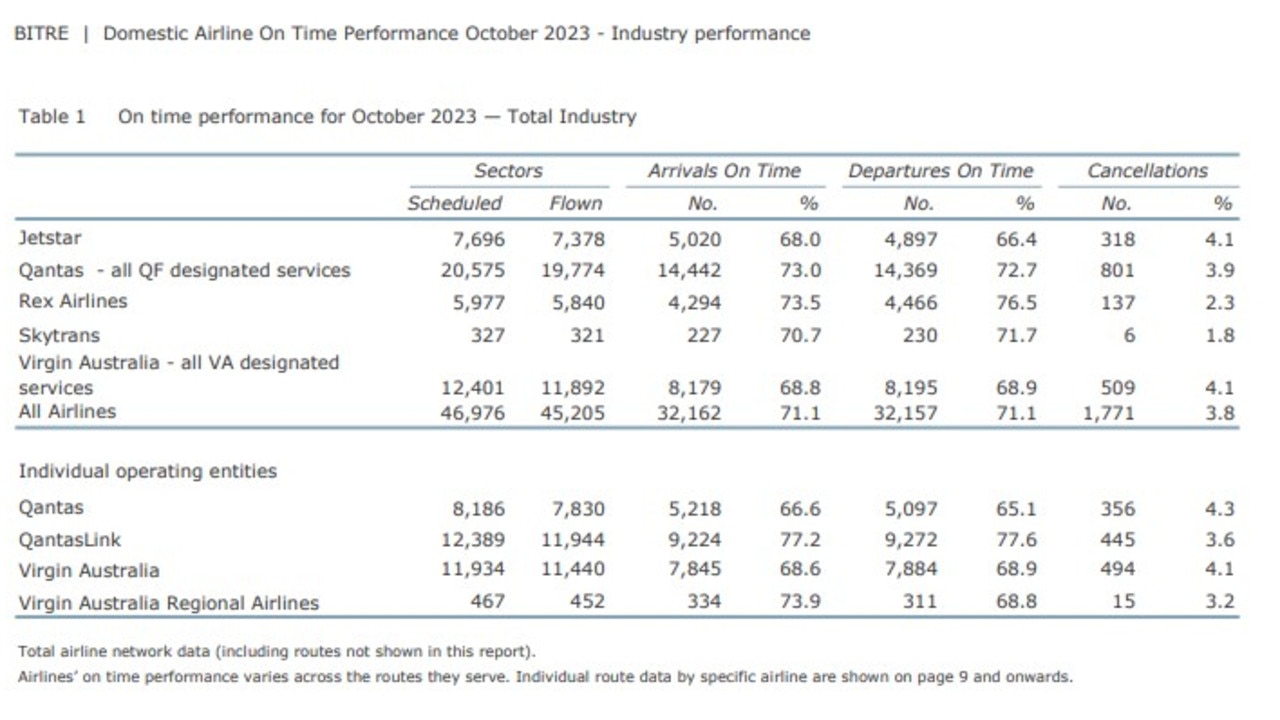
Across the country in September, 4.9 per cent of Jetstar flights, 3.2 per cent of all Qantas flights, and 3.9 per cent of Virgin flights were cancelled.
After years of calls for reform, an extensive government review and mounting frustration among travellers, Mr Culbert said: “What amazes me is that after all the criticism and all the public scrutiny, the behaviour continues.”
“We know how important it is for our customers to get away on time and we’re focused on making sure we deliver on the experience our customers expect,” a Qantas spokesperson said.
“We remain the most on-time major airline, leading our main competitor for a 14th consecutive month, and have had lower cancellations for the past six months.”
Virgin did not respond to a request for comment.
Embattled Transport Minister Catherine King did not response to a request for comment for this story.
Why so many flights are dumped
An airport flight slot – an allocated time frame in which an airline can land or take off – is a model that was developed by the aviation industry at a global level in the 1970s.
The system was designed to help the world’s busiest airports cope with demand by giving airlines a certain number of slots each day based on need. In modern times, airports deemed to be Level Three are required to use the slot concept and Sydney Airport is one of them.
For years now, Qantas has been accused of a practice known as “slot hoarding”, where it takes more than it really needs and then regularly cancels flights.
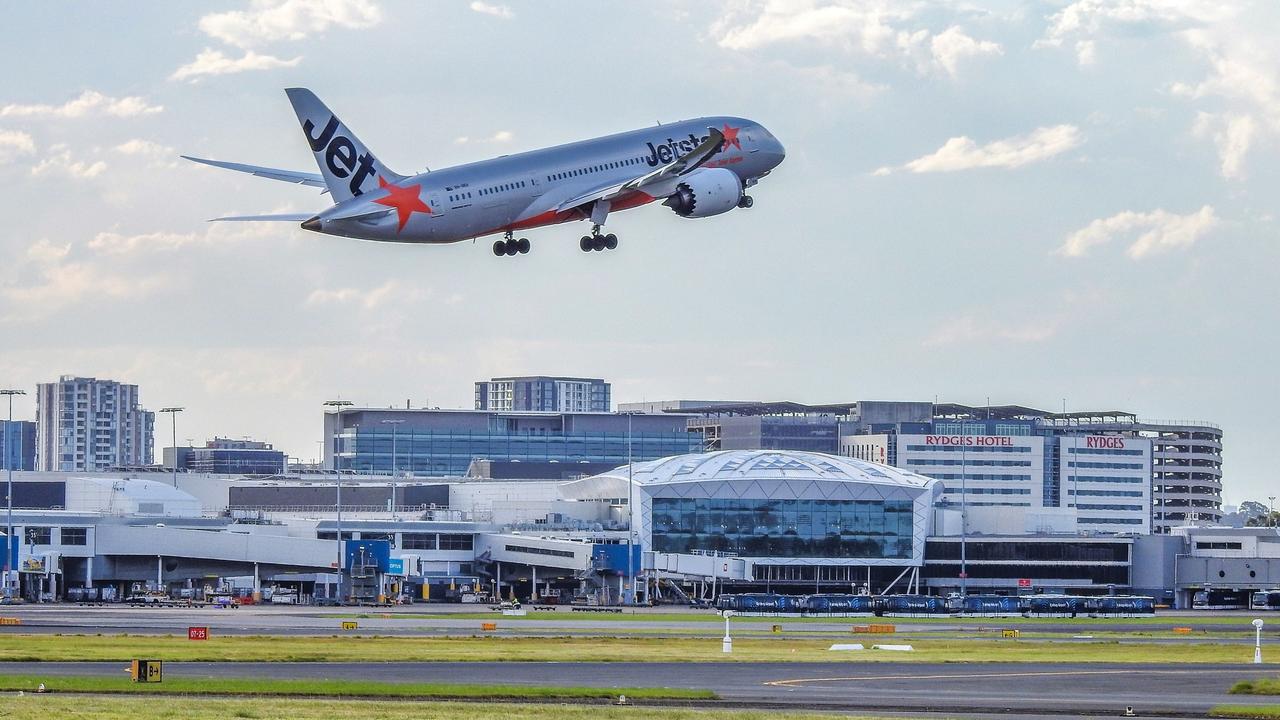
Rob Wood, the Executive General Manager of Aviation at Sydney Airport Corporation, told Parliament’s Standing Committee on Economics in August that am “arms race” began in the 2010s.
For example, between 2017 and 2019, flights between Sydney and Melbourne increased by 3.3 per cent, or around 2000 extra flights per year.
However, passenger volumes actually decreased by 0.2 per cent, and cancellations skyrocketed by 74 per cent.
“As slots during Sydney Airport’s peak hours started to fill, we noticed a trend in the incumbent airlines increasing slot filings,” Mr Wood told the committee.
“It appeared as though an arms race of sorts was taking place, even though overall patronage was not increasing at the same rate.
“The trend continues in the post-pandemic environment and cancellation rates on certain routes remain high, bringing into question why airlines apply for and hold slots they seemingly don’t need.”
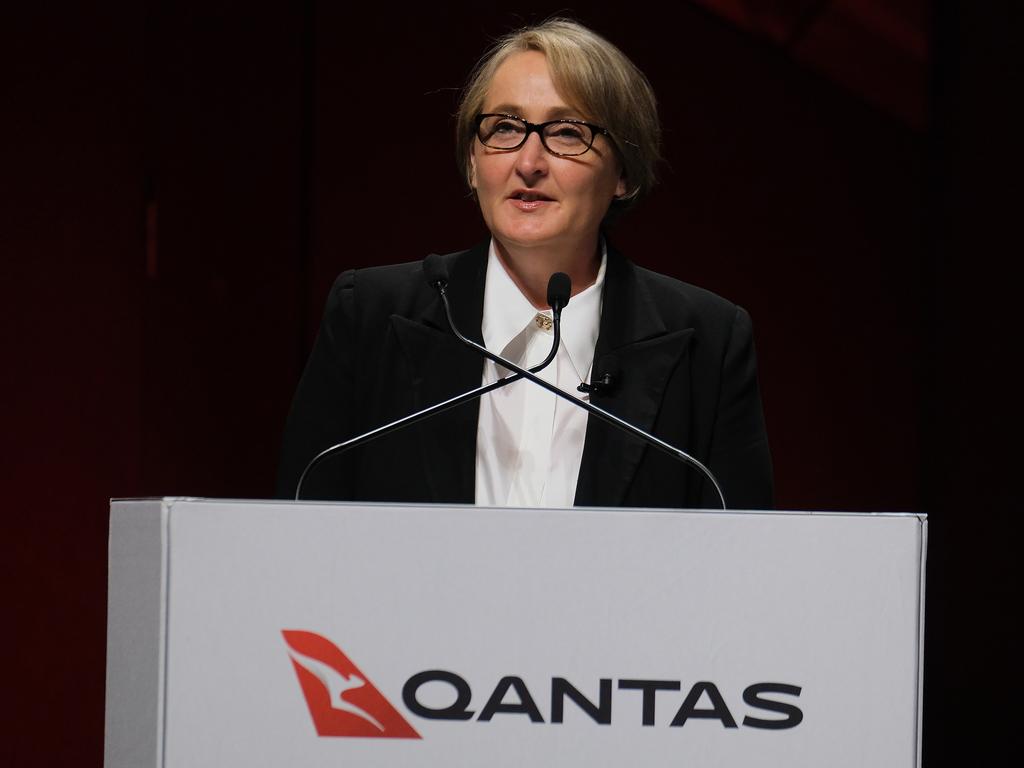
The consequence of this practice is that major airlines “shut-out competition” and new market entrants, like Rex and Bonza, can’t access slots being tightly held by big players like Qantas and Virgin.
Qantas has been particularly ferocious at slot hoarding, critics say.
Slots are rolled over “year after year” under the so-called ’80-20 use it or lose it’ rule, which takes slots away if more than 20 per cent aren’t used.
“Data suggests that overfilling and then cancelling by incumbent airlines is a strategic way to hold slots that they don’t really need and, in effect, to block other airlines from accessing them and establishing a foothold in the market,” Mr Wood said.
“Slot misuse in the aviation industry, and specifically at Sydney airport, is a product of the existing outdated regulatory framework that has allowed it to perpetuate.
“The system is no longer fit for purpose and incentivises airlines to behave in a certain way.”
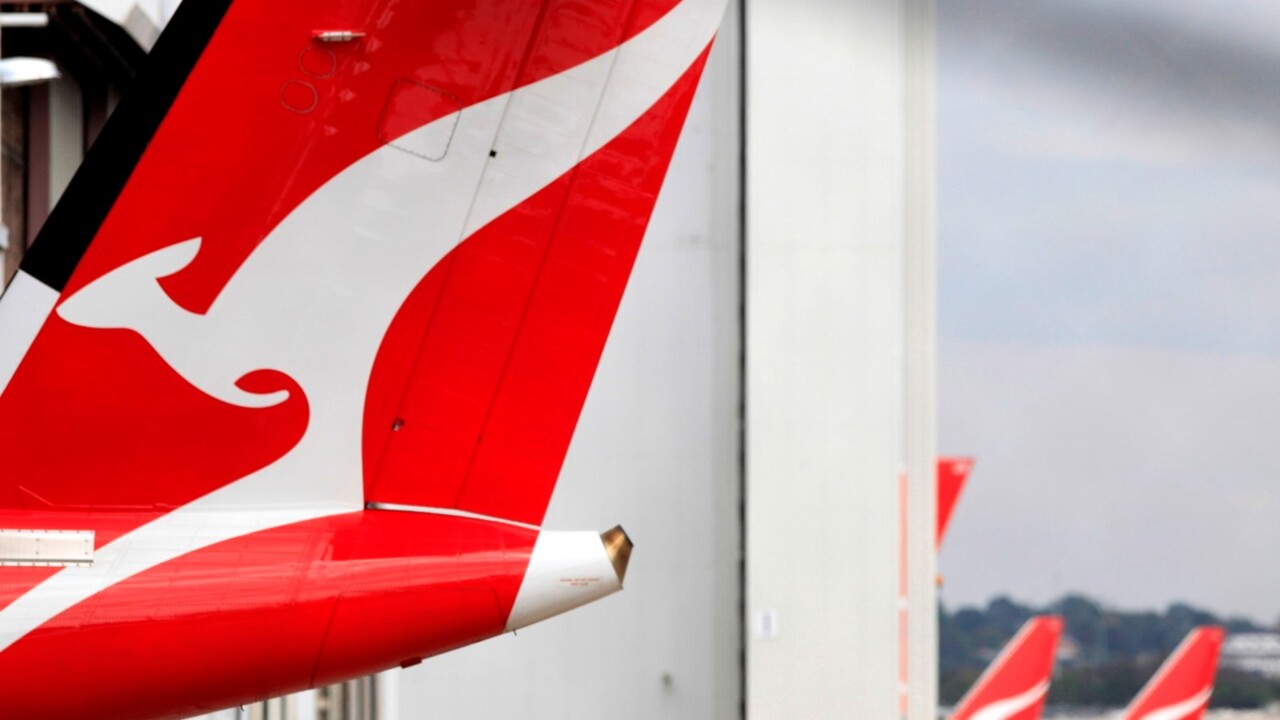
An icon under fire
In August, the Australian Competition and Consumer Commission launched action in the Federal Court against Qantas over flight cancellations.
The ACCC alleges the airline engaged in false, misleading or deceptive conduct by selling tickets for more than 8000 flights that it had already cancelled, but continued advertising.
An investigation revealed that between May and July 2022, the Flying Kangaroo sold seats on flights it had already cancelled for an average of more than two weeks, and in some cases for up to 47 days, after the services were yanked.
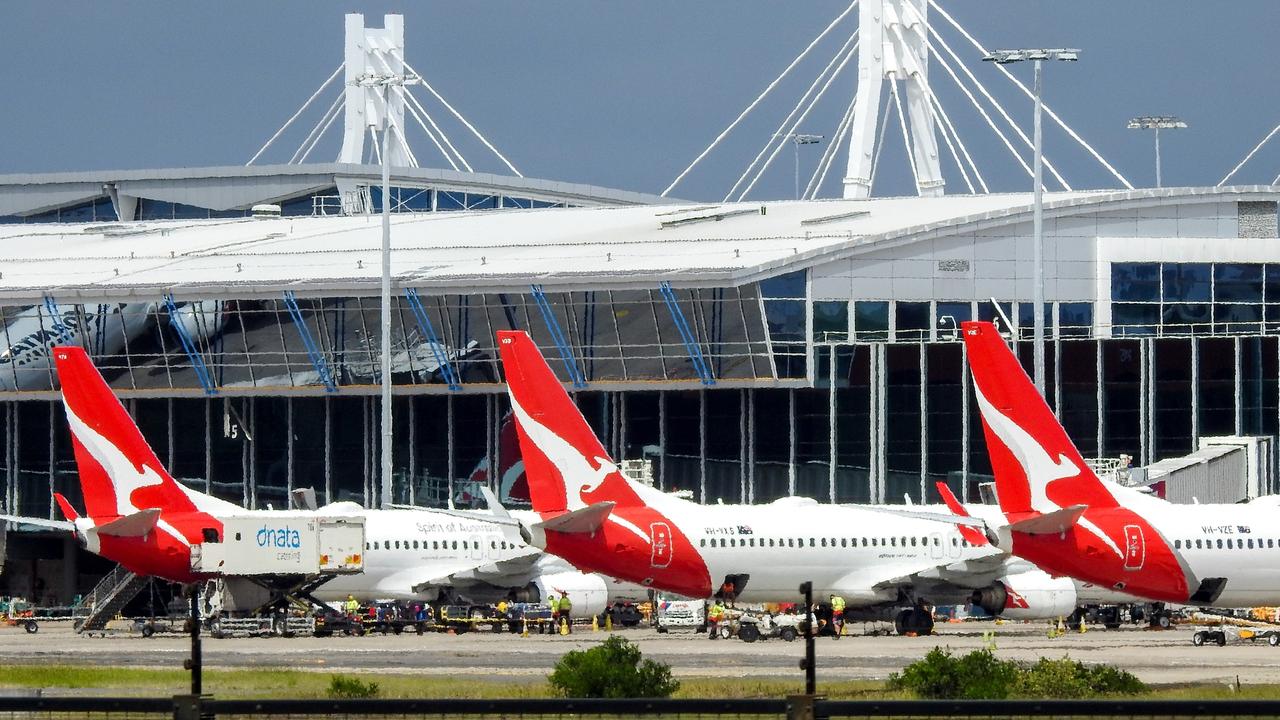
The ACCC also claims Qantas did not notify existing ticketholders of cancellations of more than 10,000 scheduled flights for an average of 18 days.
And for about 70 per cent of cancelled flights in the period examined, it either continued to sell tickets or delayed informing existing passengers.
ACCC Chair Gina Cass-Gottlieb said the practice likely affected the travel plans of “tens of thousands of people”.
“We allege that Qantas’ conduct in continuing to sell tickets to cancelled flights, and not updating ticketholders about cancelled flights, left customers with less time to make alternative arrangements and may have led to them paying higher prices to fly at a particular time not knowing that flight had already been cancelled,” Ms Cass-Gottlieb said.
“There are vast distances between Australia’s major cities. Reliable air travel is essential for many consumers in Australia who are seeking to visit loved ones, take holidays, grow their businesses or connect with colleagues.
“Cancelled flights can result in significant financial, logistical and emotional impacts for consumers.”
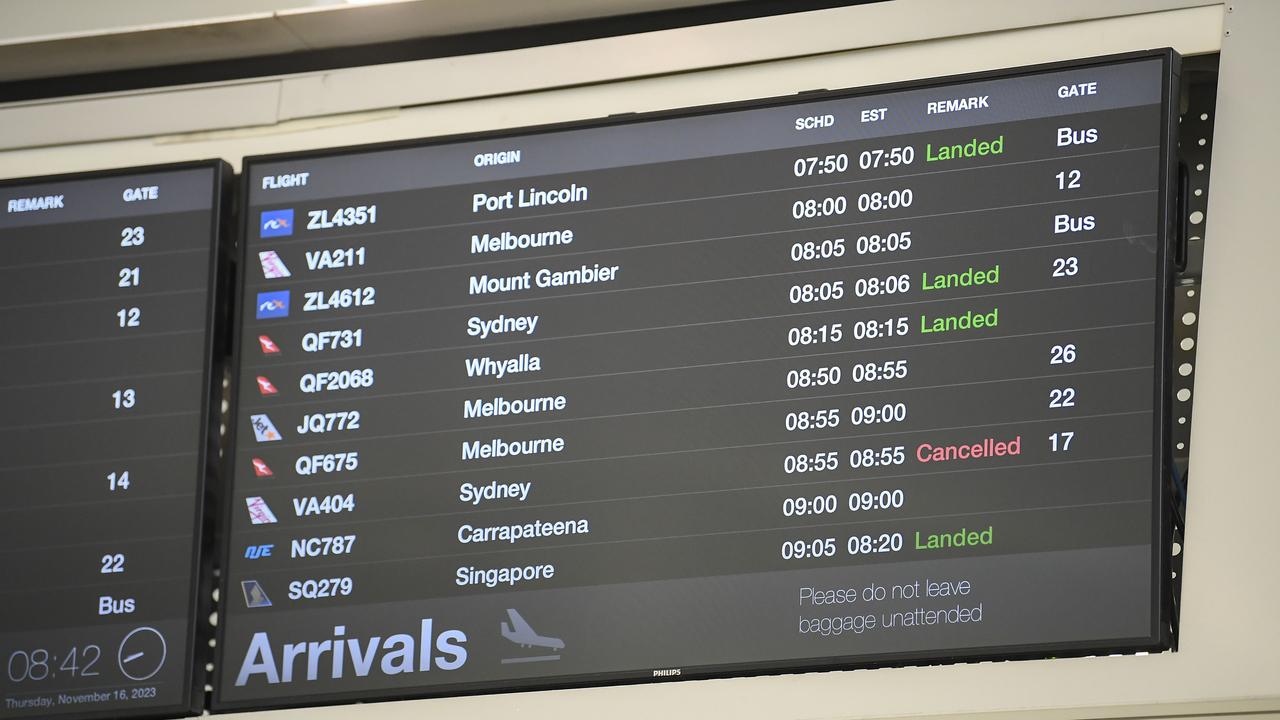
The ACCC’s case against Qantas points out that airlines can cancel services in the short term due to a range of unforeseeable reasons including bad weather, aircraft defects and delays from previous flights”.
“We allege that Qantas made many of these cancellations for reasons that were within its control, such as network optimisation including in response to shifts in consumer demand, route withdrawals or retention of takeoff and landing slots at certain airports,” Ms Cass-Gottlieb said.
Push to get out a big stick
Dr Ryan is pushing for reforms that would force airlines who cancel services needlessly to compensate passengers who are affected.
I’m calling for the Federal Government to act now so passenger get compensated for delayed and cancelled flights,” she said.
“It would put more money in consumers’ pockets, and it would motivate airlines to cancel fewer flights, as is the case overseas.”
In the US, the running daily average of cancelled flights is about two per cent. Airports in Canada and the European Union also have far fewer cancelled services, Dr Ryan pointed out.
“And passengers rightfully get compensated when they are cancelled.”
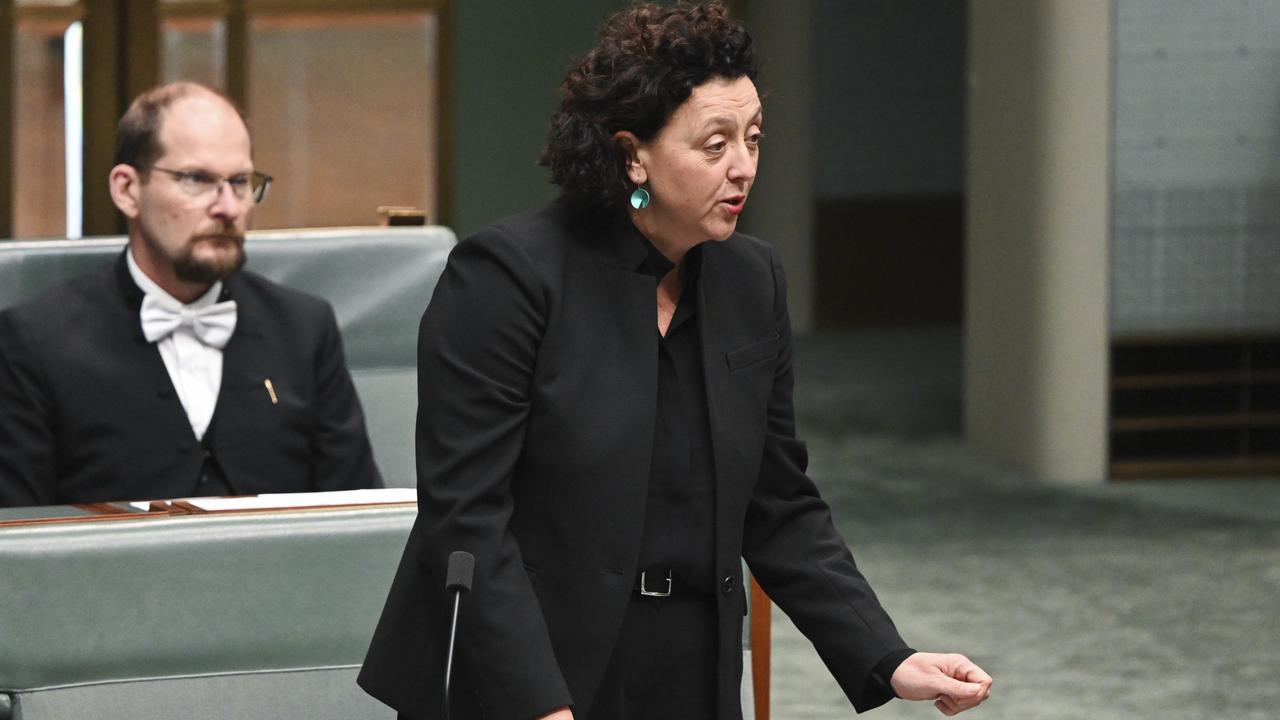
Similar compensation schemes have existed in Europe and the United States for almost two decades, requiring airlines to pay passengers depending on the length of delays and the severity of inconvenience endured.
“Amid a cost-of-living crisis, it’s not good enough that Australia lags the world on consumer protections for air travellers,” Dr Ryan said.
“Like almost all other developed countries, we need to introduce strong consumer laws that compensate air travellers for delayed or cancelled flights.”
Putting profit over performance?
Qantas accounts for an estimated 60 per cent of all domestic air travel in Australia, giving it an enviable dominance of the market.
Those who’ve flown with the airline in recent times have noticed a drop in the quality of service and expressed frustration at its reliability.
At the same time, airfares remain high and are growing more costly for what Qantas says are significant cost pressures.
Qantas last month began charging passengers more to fly, blaming a 30 per cent increase in the cost of aviation fuel and the weak Australian dollar.
The airline cut its workforce by almost 10,000 during Covid, leaving it with a critical staff shortage when restrictions eased, and life began to return to normal.
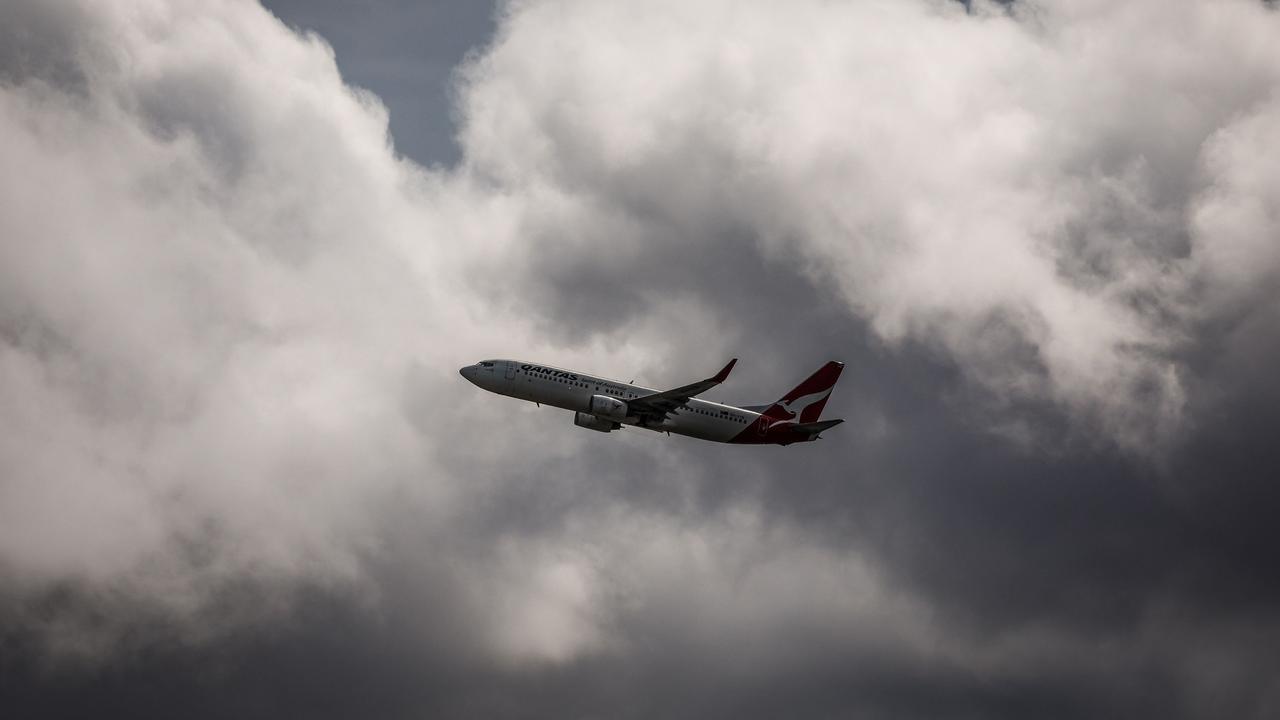
It has faced consequences for those cost-saving measures beyond its falling performance standards.
Qantas lost a High Court appeal against two Federal Court rulings that it illegally sacked 1700 ground handlers during the Covid pandemic and outsourced the work.
The airline posted a mammoth $2.47 billion profit last financial year.
It’s ‘hard to love’ Qantas
In his address to the Australian Airports Association event earlier this month, Mr Culbert said everyone in the aviation industry “wants Qantas to be successful”.
But goodwill for the iconic brand “amongst all Australians” is currently sitting at “a millimetre beneath the surface”.
“It’s one of the greatest and most-loved brands to ever come out of Australia and we all want to fall in love with Qantas again, but it’s hard to do so when they continue to cancel so many flights,” he said.
“I should add it would be unfair to single out Qantas, because the high cancellations rates are common to both the Qantas and Virgin, so this shouldn’t be interpreted as something affecting one airline.”
However, Qantas is cancelling flights at a much greater rate than its competitors when factoring in its regional services and budget carrier Jetstar.

